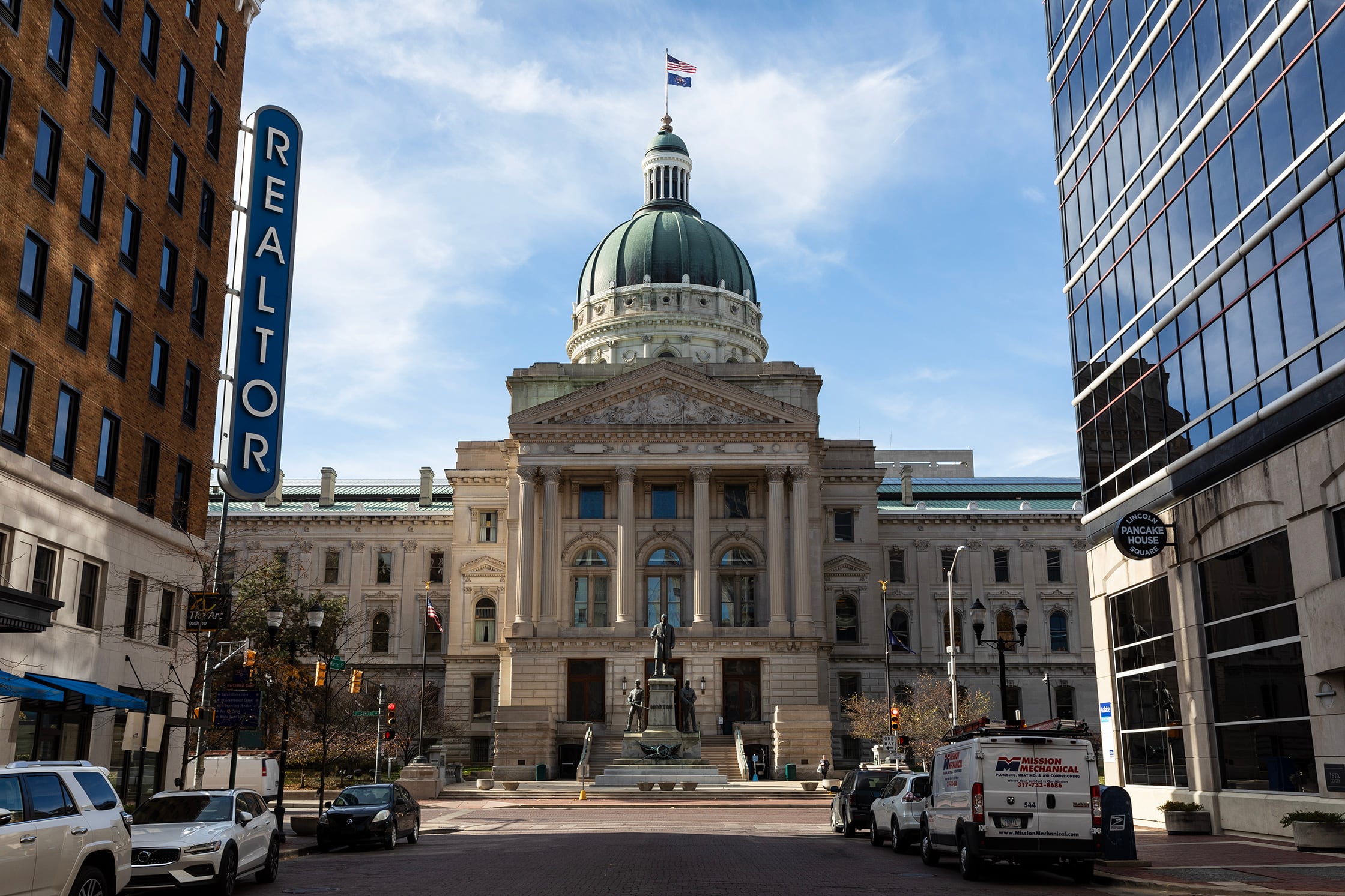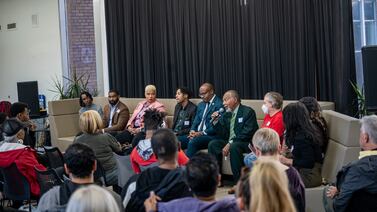Sign up for Chalkbeat Indiana’s free daily newsletter to keep up with Indianapolis Public Schools, Marion County’s township districts, and statewide education news.
Update: The Indiana legislative session ended on March 8, 2024. Here are the education bills that did and didn’t pass.
Charter school leaders would have to publicly disclose if they have a family or business connection to the owners of their school building under a new proposal in the Indiana Statehouse.
It’s the latest call for charter school oversight and transparency following federal charges that could mean decades in prison for the former leaders of the Indiana Virtual School and Indiana Virtual Pathways Academy.
The operators of the now-closed schools allegedly inflated the enrollment by thousands of students and accepted more than $44 million in state funding, according to a federal indictment filed earlier this month. The state money was allegedly funneled through several for-profit companies owned by the schools’ founder, Thomas Stoughton, and then paid out to himself, his family, former IVS and IVPA Superintendent Percy Clark, and others, the indictment said.
A Chalkbeat Indiana investigation in 2017 found ballooning enrollment and conflicts of interest at the two schools, among other problems. A lawsuit from Indiana Attorney General Todd Rokita to recoup $154 million in state funds from school leaders and others is ongoing as well.
The proposal to beef up charter oversight is an amendment to House Bill 1243, which addresses various education topics. The amendment says that a charter school shall annually post on its website “information for the immediately preceding school year regarding whether there is a familial or business relationship between the organizer, owner, or operator of the charter school and the owner of the charter school’s building.”
The amendment was authored by Democratic state Rep. Ed DeLaney, who represents Indianapolis. The bill — which includes DeLaney’s amendment — passed the House Wednesday and now goes to the Senate.
“It is clear that we need to tighten reporting requirements on the financial activities of charter schools,” DeLaney said in a statement Tuesday after his amendment was added to the bill.
He said the amendment is part of his “step-by-step” approach to require more oversight of charter schools, especially as they grow, and to fight against misuse of public money.
He pointed out that if a school district rented a school building from or contracted with the family member of the superintendent, that would be wrong, and the same goes for charters, given that they are public schools and use public funds.
“We must require transparency so the public knows who is benefitting from rent for the buildings that charter schools are using,” DeLaney said in his statement.
DeLaney is one of several lawmakers who’ve called for more oversight and transparency from charter schools and their leaders.
Sen. Andrea Hunley, a Democrat who represents parts of Indianapolis, filed a bill about charter authorizers, which approve or reject applications for new charter schools. They are also tasked with providing the kind of oversight that elected school boards handle for traditional public schools.
Hunley’s bill would restrict the power to approve and oversee new charter schools in Indianapolis to two government authorizers: the Indiana Charter School Board and the Indianapolis Charter School Board. That would halt charter authorizing in the city by other groups, including authorizers housed at Ball State University and Trine University.
Hunley’s bill follows a Chalkbeat Indiana report on charter school accountability that found roughly a third of brick-and-mortar or blended-model charter schools in Marion County have closed since 2001.
However, the bill, SB 173, is unlikely to advance. It was referred to the Senate education committee, but is not on the agenda for the committee’s last scheduled meeting before the deadlines for bills to advance out of their respective chambers.
You can track HB 1243 and SB 173 on the General Assembly’s website.
MJ Slaby oversees Chalkbeat Indiana’s coverage as bureau chief. She also covers access to higher education and Warren Township Schools. Contact MJ at mslaby@chalkbeat.org.





